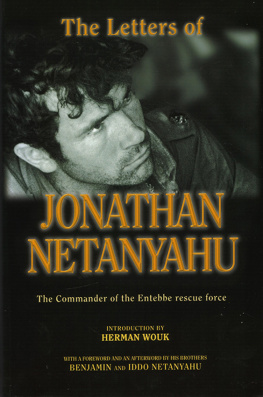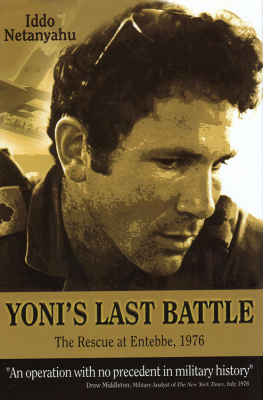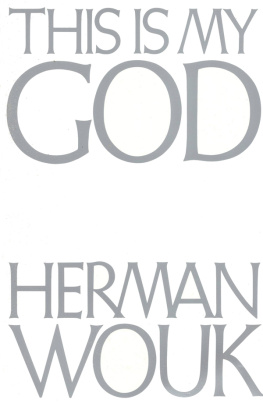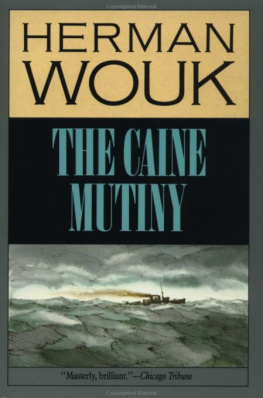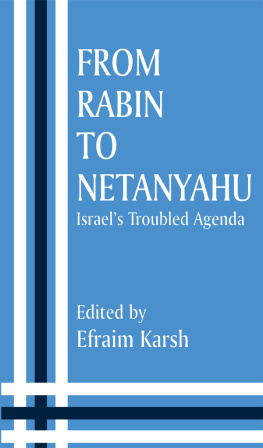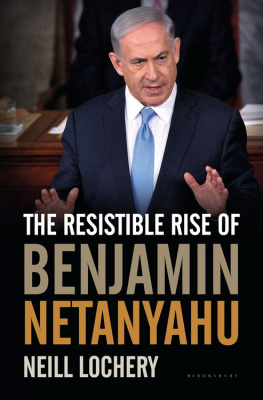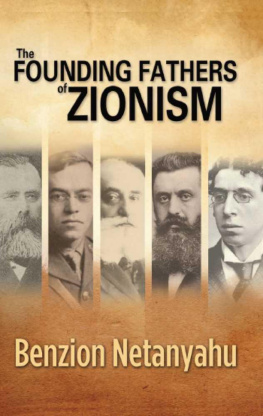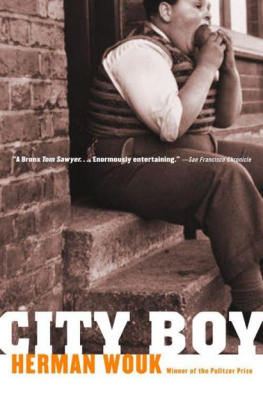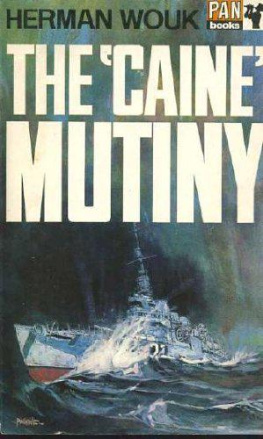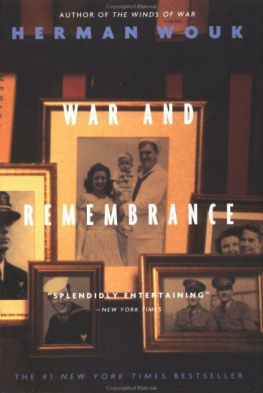Iddo Netanyahu - The Letters of Jonathan Netanyahu: The Commander of the Entebbe Rescue Force by Herman Wouk (Introduction)
Here you can read online Iddo Netanyahu - The Letters of Jonathan Netanyahu: The Commander of the Entebbe Rescue Force by Herman Wouk (Introduction) full text of the book (entire story) in english for free. Download pdf and epub, get meaning, cover and reviews about this ebook. genre: Art. Description of the work, (preface) as well as reviews are available. Best literature library LitArk.com created for fans of good reading and offers a wide selection of genres:
Romance novel
Science fiction
Adventure
Detective
Science
History
Home and family
Prose
Art
Politics
Computer
Non-fiction
Religion
Business
Children
Humor
Choose a favorite category and find really read worthwhile books. Enjoy immersion in the world of imagination, feel the emotions of the characters or learn something new for yourself, make an fascinating discovery.
- Book:The Letters of Jonathan Netanyahu: The Commander of the Entebbe Rescue Force by Herman Wouk (Introduction)
- Author:
- Genre:
- Rating:5 / 5
- Favourites:Add to favourites
- Your mark:
- 100
- 1
- 2
- 3
- 4
- 5
The Letters of Jonathan Netanyahu: The Commander of the Entebbe Rescue Force by Herman Wouk (Introduction): summary, description and annotation
We offer to read an annotation, description, summary or preface (depends on what the author of the book "The Letters of Jonathan Netanyahu: The Commander of the Entebbe Rescue Force by Herman Wouk (Introduction)" wrote himself). If you haven't found the necessary information about the book — write in the comments, we will try to find it.
Iddo Netanyahu: author's other books
Who wrote The Letters of Jonathan Netanyahu: The Commander of the Entebbe Rescue Force by Herman Wouk (Introduction)? Find out the surname, the name of the author of the book and a list of all author's works by series.
The Letters of Jonathan Netanyahu: The Commander of the Entebbe Rescue Force by Herman Wouk (Introduction) — read online for free the complete book (whole text) full work
Below is the text of the book, divided by pages. System saving the place of the last page read, allows you to conveniently read the book "The Letters of Jonathan Netanyahu: The Commander of the Entebbe Rescue Force by Herman Wouk (Introduction)" online for free, without having to search again every time where you left off. Put a bookmark, and you can go to the page where you finished reading at any time.
Font size:
Interval:
Bookmark:

Yoni as commander of an armor battalion on the Golan Heights during the Syrian War of Attrition, 1974.
The Letters of
JONATHAN
NETANYAHU
The Commander of the Entebbe rescue force
INTRODUCTION BY
HERMAN WOUK
WITH A FOREWORD AND AN AFTERWORD BY HIS BROTHERS
BENJAMIN AND IDDO NETANYAHU

Copyright 2001 Benzion Netanyahu
Introduction Copyright 1980 by the Abe Wouk Foundation
All rights reserved under International and Pan-American Copyright Conventions.
Grateful acknowledgement is made to Doris-Jeanne Gourvitch for permission to use her translation of a poem by Paul Verlaine, from Selected Verse, entitled Autumn Song.
ISBN 965-229-267-2
Library of Congress Cataloging in Publication Data
Netanyahu, Jonathan, 1946-1976.
The Letters of Jonathan Netanyahu
Translation of Mikhteve Yoni.
The Letters of Jonathan Netanyahu / Jonathan Netanyahu; with notes and afterword by his brothers Benjamin and Iddo Netanyahu.
Includes Index.
1. Yoni, 1946-1976. 2. Israel-Armed Forces-Officers-Correspondence. I. Netanyahu, Binyamin. II.Netanyahu, Iddo. III. Title.
U55.Y665A3513 356.1660924 80-5414
Printed in Israel
5 7 9 8 6
Attention: Schools and Institutions
Gefen books are available at quantity discounts with bulk purchase for educational, business, or sales promotional uses. For information please write to:
SPECIAL SALES info, fax: 011-972-2-5388-423
by
Herman Wouk
T HE READER HOLDS IN HIS HANDS A
remarkable work of literature, possibly one of the great documents of our time. Its effect on meI read it in Hebrew a year agohas been strong and lasting. It is a posthumous publication. My aim in this preface is only to introduce the late author in a few plain words. He speaks for himself with power that I cannot match.
Lieutenant Colonel Jonathan Netanyahu, Israeli Defense Force, led the storming party that in July 1976 rescued from Entebbe Airport in Uganda a hundred and three Jewish hostages, threatened by pro-Pales- tinian terrorists with execution. The exploit stunned the world. Its fame does not dim. In the continuing struggle of civilized men against the mounting global crime of terrorism, Entebbe shines, a beacon in dense gloom.
Jonathan Netanyahu was shot to death by a Ugandan soldier, when the rescue had been virtually accomplished and the withdrawal of the hostages was about to begin; for the government of Uganda was conniving with criminals. He was the only member of the rescue force to die. This was in the high tradition of the Israeli army. The motto of their officers is, After me.
Self-Portrait of a Hero is a collection of his private correspondence, written from his seventeenth year to a few days before he died. Like Anne Franks diary it is a fortuitous, not a deliberately created, work of art. The teen-ager who wrote the first homesick letter from a Philadelphia suburb to his scouting pals in Jerusalem, and the exhausted paratroop commander who dashed off the last letter to his sweetheart before he set out for Entebbe, alike had not the slightest literary intent. These are all random jottings, hasty unselfconscious scrawls.
And yet this artless out of Netanyahus changing ideas and shifting moods over thirteen years, these impressionistic glints and glimpses of him in training, in battle, and in brief peaceful interludes of study, comprise a true and brilliant portrait of a hero, the only wholly convincing one that I know of, in a contemporary literature of anti-heroes. This is what a twentieth-century hero is really like. The lands of the free will need such men until the day when the last tyrannies that spawn the terrorists are faced down, and we enter the coming age of peace, the only long-range alternative to a planet of ash. In this grim plain truth lies the importance of Netanyahus letters.
Their charm and force lie in the man himself.
Strange, slender, but strong threads tie me to this young Jewish soldier, whom I never met, and never heard of till he died in the rescue mission, now called in Israel Operation Jonathan. His grandfather and mine, it turns out, both studied the Talmud at the great Volozhin Yeshiva in Lithuania. He and I were both born in America. My parents like his were Zionists. But his father and mother returned to Palestine, where they had lived as youngsters, to raise their children; the father is a distinguished historian, the mother read for the bar in London, and both have been serious workers in the Zionist movement. For my parents America was the land of present promise, Zion a dream. I grew up on the streets of New York; Jonathan, in the pleasant green byways of Jerusalem. When the State of Israel was created in 1948, I was thirty-three and my first-born son, Abe, was two years old. Jonathan then was Abes age.
My wife and I lost Abe in a tragic and senseless accident, a month or so before his fifth birthday. The Netanyahus lost Jonathan shortly after his thirtieth birthday. If parents are fated to mourn a son, and if one can envy such bitter bereavement, my wife and I can envy the Netanyahus. Their son died for his people and for all men, in the full flush of manhood, doing a famous deed. In his death he helped to save more than a hundred lives, brought glory to Israel, and gave the world a blaze of hope in a very dark time. I may say he sanctified the name of God. For our son, we have only the tears and the scar of a senseless waste. By the power of this book, the two sons seem to blend in my mind and heart; and in mourning Lieutenant Colonel Netanyahu I mourn Abe, and what he might have been. I mourn too the million Jewish children who were murdered by Hitlers Germany in senseless waste. In Jonathans death there is the redeeming dawn of Israel. He could fight, and he fought
The correspondence first appeared serially in the Israeli newspaper Maariv (Evening). Published there in book form as Yonis Letters, it was a great success. For well before the Entebbe rescue, within the army and outside it, Yoni Netanyahu was already something of a legend; a taciturn philosopher-soldier of terrific endurance, a hard-fibered, charismatic young leader, a magnificent fighting man. On the Golan Heights, in the Yom Kippur War, the unit he led was part of the force that held back a sea of Soviet tanks manned by Syrians, in a celebrated stand; and after Entebbe, Yoni became in Israel almost a symbol of the nation itself. Today his name is spoken there with somber reverence.
I had not heard of this book until in 1978 I consulted an Israeli colonel about a novel that I am working on. Have you read Yonis Letters? he asked. I pleaded ignoranceBut youve heard of Jonathan, the officer who died at Entebbe.Of course.Well, its an amazing book. Ill send you a copy. You read Hebrew?Yes.Good.
A month or so later, the book arrived at my home in Washington inscribed, For Herman Wouk, this book of the letters of my friend, to whom I owe my life. So I learned that among Yonis many daring exploitssome of them still veiled in secrecywas his rescue of this officer, wounded and helpless behind the Syrian lines, for which he was decorated. And so I came to read Yonis Letters.
A word about my Hebrew-reading ability. I have not lived in Israel, though I visit there often. I have small chance to speak the language, and to my regret I know little of the current literature. I am the sort of Diaspora Jew that my father and grandfather were. My grounding is in the classics; mainly the Scriptures, the Talmud, and the scholarly commentaries. The curious result is that I can read a prophecy of Jeremiah more easily than the front page of
Font size:
Interval:
Bookmark:
Similar books «The Letters of Jonathan Netanyahu: The Commander of the Entebbe Rescue Force by Herman Wouk (Introduction)»
Look at similar books to The Letters of Jonathan Netanyahu: The Commander of the Entebbe Rescue Force by Herman Wouk (Introduction). We have selected literature similar in name and meaning in the hope of providing readers with more options to find new, interesting, not yet read works.
Discussion, reviews of the book The Letters of Jonathan Netanyahu: The Commander of the Entebbe Rescue Force by Herman Wouk (Introduction) and just readers' own opinions. Leave your comments, write what you think about the work, its meaning or the main characters. Specify what exactly you liked and what you didn't like, and why you think so.

